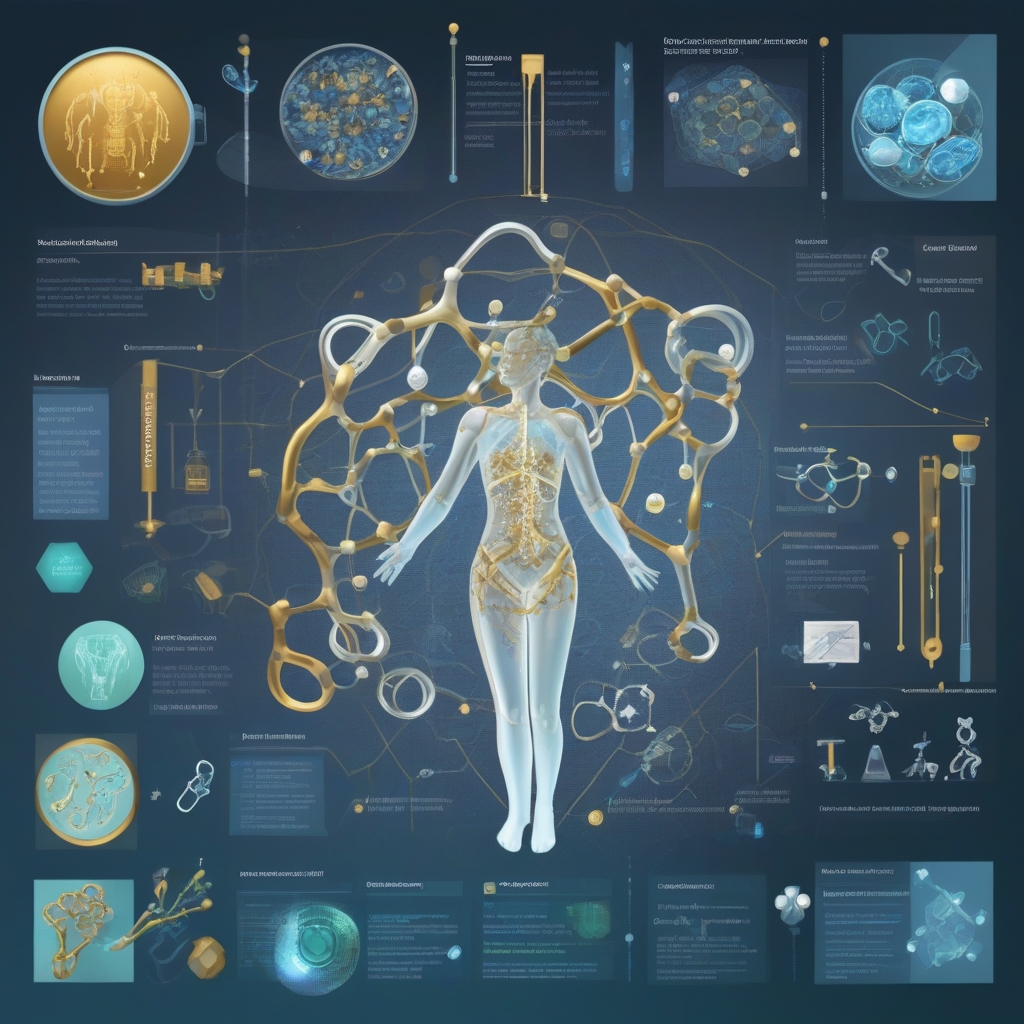The Intersection of AI and Biology: A Nobel-Winning Breakthrough
The world of biomedicine has witnessed a monumental leap forward with artificial intelligence (AI) at the heart of scientific discovery, ultimately leading to a noteworthy Nobel Prize win in Chemistry. The intersection of AI and biology has unlocked unprecedented potential, marking a transformative milestone in scientific research. This convergence is not only an achievement for the esteemed Nobel laureates but also a testament to the limitless possibilities AI brings to biomedicine.
AI’s Role in Biological Discovery
AI’s application in biology, particularly in understanding complex biological structures such as proteins, has opened new avenues for research and medical breakthroughs. The intricate dance of amino acids forming proteins is fundamental to cellular processes and biological machinery, yet understanding their structure has long been a daunting challenge for scientists.
The recent Nobel Prize in Chemistry highlights how AI’s capabilities have surpassed traditional methods, allowing for:
- Rapid and accurate protein structure prediction
- Decoding the foundational elements of biological systems
- Enabling breakthroughs in drug discovery and personalized medicine
From Algorithms to Nobel Accolades
One of the pivotal developments that garnered the Nobel accolade was the integration of sophisticated AI algorithms into protein folding prediction models. These algorithms, leveraging deep learning techniques, have drastically reduced the time required to predict protein structures from years to mere hours or days.
Such innovations demonstrate how AI binds together elements of computational power, biological knowledge, and algorithmic finesse to achieve:
- High-resolution modeling of protein structures
- The ability to predict molecular interactions with precision
- Significant advancements in understanding diseases at a molecular level
The Collaborative Future of AI and Biomedicine
The convergence of AI and biomedicine signifies a shift towards more iterative and collaborative approaches to scientific problems. Laboratories around the world are transforming into hubs of innovation where AI systems and scientists work in synergy. This partnership is characterized by:
- Enhanced research capabilities: AI propels research processes by analyzing vast datasets, identifying patterns, and offering new insights that may be elusive to the human eye.
- Streamlined experimentation: Automating routine tasks frees up creative energy for scientists, allowing them to focus on groundbreaking experiments.
- Interdisciplinary innovation: The fusion of tech and biology sparks collaboration across multiple fields, driving comprehensive scientific solutions.
Potential Societal Impact
The implications of this AI-driven breakthrough extend far beyond the realms of academic achievement. The real-world impact on healthcare, medicine, and patient outcomes is transformative. By integrating AI in biomedicine, we anticipate significant societal benefits:
- New therapies and precision medicine: AI-driven discoveries pave the way for novel treatments and therapies, tailored to the individual characteristics and needs of patients.
- Improved diagnostic capabilities: AI enhances diagnostic accuracy and speed, leading to earlier detection and intervention in diseases.
- Enhanced global health: With AI’s ability to analyze vast datasets, public health initiatives can become more effective, addressing worldwide health challenges.
Challenges and Ethical Considerations
Despite the remarkable advancements, navigating the ethical terrain of AI in biomedicine remains a crucial aspect. As AI systems proliferate, considerations must include:
- Ensuring data security and patient privacy in sensitive medical research
- Addressing biases in algorithmic decision-making that might affect patient care
- Maintaining transparency and accountability in AI-driven processes
Policymakers, scientists, and technologists need to collaboratively develop frameworks that enhance the responsible and equitable use of AI in the life sciences.
Conclusion
As the world witnesses the dawn of AI in biology, the Nobel Prize serves as a beacon of the profound impact such synergies can yield. The future holds an inspiring promise where AI not only transforms biomedicine through innovative solutions but also elevates humanity’s quest for knowledge and betterment. With continued collaboration and ethical guidance, AI-driven biological research is poised to redefine the boundaries of what is possible in medicine and healthcare.
This breakthrough not only cherishes the accomplishments of the Nobel laureates but also heralds a new era where the potentials of AI unravel both the mysteries of life and the possibilities of its enhancement, ultimately paving the way for a healthier and more informed future for all.

Leave a Reply